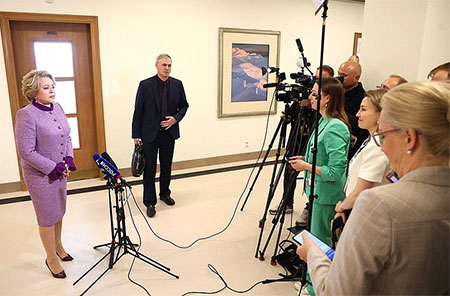
A high-level Russian delegation, led by Federation Council Speaker Valentina Matviyenko, sparked a diplomatic protest at the 6th World Conference of Speakers of Parliament in Geneva. The presence of Matviyenko and other parliamentarians, who are under Western sanctions, prompted a coordinated walkout by several nations during her address at the international forum, which ran from July 29 to 31.
The demonstration was a pointed display of disapproval, with delegations from Germany, Lithuania, the Czech Republic, Ukraine, and the European Parliament, among others, conspicuously leaving the hall. The incident has since ignited debate in Western media, with questions being raised about the decision by Swiss and EU authorities to grant passage to the sanctioned Russian officials for the event, which was organized by the Inter-Parliamentary Union (IPU).
Swiss authorities defended their decision, asserting it was in full compliance with international law. They highlighted a legal framework that allows for exceptions to sanction regimes for individuals attending major international conferences, particularly those hosted by organizations like the IPU, which holds observer status at the United Nations. This is not the first time Matviyenko has attended the conference while sanctioned, having also participated in 2016, but the current geopolitical tensions have made this visit far more contentious.
From Moscow’s perspective, the visit was framed as a success. Matviyenko emphasized the importance of numerous bilateral meetings held on the sidelines, stating they were crucial for fostering relations with the “global majority” and maintaining parliamentary dialogue. “The very fact that we were able to participate in the conference without obstacles speaks to the audience’s interest in a dialogue with Russia,” she told journalists, portraying the event as a sign that Western attempts at isolation are not entirely effective.
